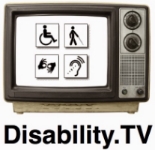Thinking Today
/I was thinking today about new way to explain how we want disability programs to change.
It’s not that we insist on nursing homes, group homes, sheltered workshops, and separate, self-contained classes all being banned … although some disability rights would like exactly that. The problem is that right now, in most states and localities, these types of facilities and programs are treated as default options when they should be last resorts.
If you need help with everyday self-care, you can go into a nursing home. Or, if you have a damned good reason, you might be able to get home care and supports instead so you can live in your own place like everyone else does.
If you have developmental disabilities and your parents can’t take care of you anymore, you can live in a group home. Or, if you have a damned good reason, you might be able to get on a waiting list for services that enable you to live in your own apartment.
If you need ongoing training and support to find and succeed in a job, you can work in a sheltered workshop, maybe for less than minimum wage, and certainly cut off from the rest of the community. Or, if you have a damned good reason you might get some services and supports that help you find and keep a job in a real workplace out in the community.
And if you’re a kid with significant disabilities, you may find yourself in a separate school or separate classroom just for kids with disabilities. Or, if your parents can give a damned good reason, your school district might agree to let you learn in a regular classroom along with other kids your own age who aren’t all disabled.
Instead of having to make an extra-strong, carefully laid out and heavily researched argument for why they should be allowed to live like everyone else, disabled people should have to have a damned good reason if they prefer instead to live and work in a more segregated, specialized, sheltered environment.
If you want to move into a nursing home, you should have to have a damned good reason why you can’t live at home with supports instead.
If you or your family would prefer a group home, you should have to have a damned good reason why you can’t live in your own place with supportive services.
If really want to work in a sheltered workshop, you should have a damned good reason why you can’t work in a regular job with job coaching and supports.
And if your parents want you to go to school in a “special” school, they should have a damned good reason why you can’t benefit from education in a regular school with non-disabled peers.
Maybe these older, more restrictive programs should still be options, but you should have to give a damned good reason to choose them. You shouldn’t have to prove that freedom and independent are right for you. You should have to prove if you think they aren’t.









